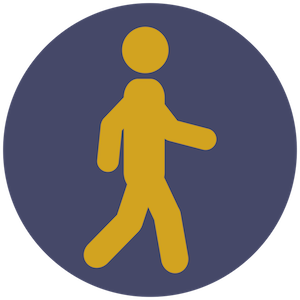CLS will represent Medicare beneficiaries in a variety of areas, which include: direct representation in appeals to denial or reduction of benefits or services; legal advice in all areas of Medicare; legal assistance with eligibility questions or concerns related to the savings program or extra-help program; direct representation and/or legal assistance with balance billing issues; advocacy with Medicare providers when there is a dispute as to a service or benefit. Also, CLS advocates are available to do community education on Medicare and its various programs, services and benefits.
How We Can Help
What to Bring
Before you call or visit CLS, gather any notices you have received about the Medicare issue or denial.
Where To Get Help
Community Legal Services
1410 W. Erie Ave
Philadelphia PA 19140
Mondays and Wednesdays 9:00 am-12:00 pm
Community Legal Services
215-981-3700
Thursdays 9:00am – 12:00pm
Your call will be returned within 2 business days.
About Medicare
Medicare is a federal health insurance program for those who are at least 65. You may also get it if you are disabled and receiving Social Security Disability Insurance (SSDI) benefits or have end stage kidney disease. Medicare is run by the federal government. The government issues a red/white/blue card to Medicare recipients, and the card has information on when that individual’s Medicare benefits became effective. You can choose to either have “Original Medicare”, which means you use your government issued red/white/blue card to go to the doctor and the hospital; or you can choose to have your Medicare benefits administered through a private plan or HMO, and in that situation you will have an insurance card from that plan which you would use for your doctor’s visits, hospital visits and prescription drugs. Medicare benefits are divided into different parts, commonly referred to by letter:
Part A—hospital insurance
Part B—doctor’s visits, outpatient services, medical equipment
Part C—Medicare Advantage Plans. If you choose to have your Medicare benefits administered by a private plan, you will have Part C and you will have an insurance card from that Plan.
Part D—prescription drug coverage.
Medicare also has programs to help low income individuals afford the costs associated with Medicare covered benefits and services. The programs are available to those 65 years and older who are on Medicare (as well as those under 65 who are disabled and on Medicare). The Medicare Savings Program, commonly known as the “buy-in”, are programs in which the state Medicaid system pays the Medicare Part B premium for low income Medicare beneficiaries who qualify. For Part D, there is the “Extra-Help” program, also referred to as the Low Income Subsidy (“LIS”). Recipients of the LIS will get substantial assistance with their prescription drug costs. There are two tiers to the LIS program. For more information on the buy-in and the LIS programs, see “Self Help Materials”.
If you are an individual who has full Medicare and full Medicaid benefits, you are considered a “dual eligible”, which means that you should have no cost share associated with your Medicare benefits and services, other than your co-pays for your prescription drugs (and those co-pays would be minimal because you would have a full low income subsidy). Your Medicaid coverage acts as your “secondary” form of coverage, meaning that whatever Medicare does not cover, Medicaid should pay for. More importantly, dual eligible individuals should not get “balance billed”, meaning that they should not get bills from doctors, hospitals or other Medicare providers billing that individual for the balance of the cost associated with their Medicare service.
CLS’ Aging and Disabilities Unit is supported in part by funding provided by PCA and the Pennsylvania Department of Aging.




